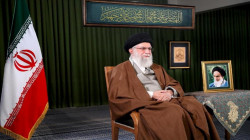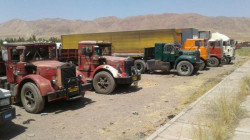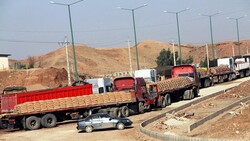US: Our response began today, but we do not want war with Iran

Shafaq News/ The US military launched airstrikes on dozens of sites related to Iranian-backed forces and the Iranian Revolutionary Guard (IRGC) in Iraq and Syria.
The incident is the first retaliation for a drone attack that killed three soldiers and injured about 40 others at a US base in Jordan.
"At my direction, US military forces struck targets at facilities in Iraq and Syria that the IRGC and affiliated militia use to attack US forces," US President Joe Biden said in a statement.
"Our response began today. It will continue at times and places of our choosing," he added.
US Defense Secretary Lloyd Austin said, "This is the start of our response."
In a statement, US Army Central Command (CENTCOM) reported that its forces "struck more than 85 targets, with numerous aircraft to include long-range bombers flown from United States. The airstrikes employed more than 125 precision munitions."
The strikes took place over about 30 minutes, and three of the sites struck were in Iraq, and four were in Syria, said US Lieutenant General Douglas Sims, the director of the Joint Staff.
Despite the US's escalating speech and retaliation, the Pentagon pointed out it does not want war with Iran.
"We do not seek conflict in the Middle East or anywhere else, but the president and I will not tolerate attacks on American forces," Austin said.
On Friday, Iranian President Ebrahim Raisi said that Iran would not start a war but would "respond strongly" to anyone who tried to "bully" it.
Concerning the US attacks in Iraq, military sources told Shafaq News Agency that the strikes targeted sites of Kataib Hezbollah (Hezbollah Brigades) in the Al-Sikak area within the Al-Qaim District of Al-Anbar Governorate, western Iraq, close to the Iraqi-Syrian border.
Notably, Kataib Hezbollah declared last Tuesday a halt to its operations against the US forces to "avoid causing embarrassment to the Iraqi government."
The sources explained that the attacks destroyed four military sites of the Brigades, killed two civilians, and injured five others.
The two civilians were identified as Muhammad Shehadha Daki Al-Rawi and Sattar Al-Jughaifi.
"the situation in the area is like a war." One source said.
Meanwhile, National Security Council spokesman John Kirby said the targets "were carefully selected to avoid civilian casualties and based on clear, irrefutable evidence that they were connected to attacks on US personnel in the region." He declined to detail what that evidence was.
Kirby said the Iraqi government was notified about the strikes ahead of time.
Despite Kirby's announcement, Iraq's military spokesman, Yahya Rasool, said the US airstrikes constitute a violation of Iraqi sovereignty, undermine the efforts of the Iraqi government, and pose a threat that could lead Iraq and the region into dire consequences. The outcomes will severely affect the security and stability in Iraq and the surrounding region."
Syrian state media reported that there were casualties but did not give a number. The UK-based Syrian Observatory for Human Rights reported that 18 militants were killed in the Syria strikes.
Notably, the US troops have been attacked over 165 times in Iraq, Syria, and Jordan since Oct. 7, and the start of the Israeli war in the Hamas-run Gaza Strip, killing more than 30,000 Palestinians and displacing more than 500 hundred thousand.





